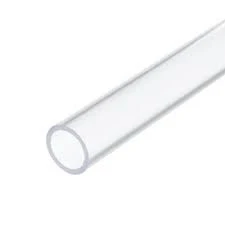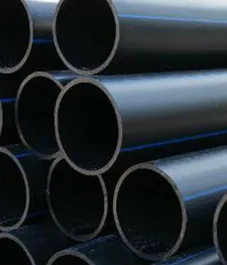פבר . 11, 2025 04:46 Back to list
pvc irrigation pipe sizes
Polyvinyl Chloride (PVC) irrigation pipes have become the backbone of modern agricultural and residential irrigation systems, lauded for their durability, cost-effectiveness, and versatility. When choosing the right size of PVC irrigation pipes for your needs, it's crucial to understand various factors that influence both performance and reliability. This comprehensive guide explores the world of PVC irrigation pipe sizes, backed by expert experience and insights.
Expertise in PVC pipe materials plays a pivotal role in achieving optimal performance. PVC pipes are renowned for their smooth inner surfaces, reducing friction loss significantly compared to metal pipes. This attribute often allows for slightly smaller pipe diameters without sacrificing water velocity or efficiency, which is particularly advantageous in intricate irrigation layouts. The installation process and associated costs cannot be overlooked when selecting PVC pipe sizes. Larger pipes, although beneficial for high-flow systems, might require more significant investment in terms of trenching and installation. Balancing the initial cost against long-term benefits and maintenance is crucial. Opt for a size that addresses immediate irrigation needs while offering room for any future expansion. Longevity and sustainability are equally important when considering PVC pipe sizes. PVC's resistance to chemical corrosion makes it a prime candidate for both agricultural and residential systems. Additionally, its robust nature means that, with proper sizing and maintenance, a PVC irrigation system can significantly outlast its initial amortization period, offering reliable service for decades. Trust in PVC pipe sizing also involves adherence to industry standards and regulations. Ensure your chosen pipes meet or exceed the certified guidelines for pressure ratings and material quality. Consulting with industry professionals or manufacturers can provide reassurance and additional insights, steering clear of costly over or underestimations. In conclusion, selecting the appropriate PVC irrigation pipe size is a multifaceted decision requiring careful consideration of agricultural demands, environmental conditions, and financial implications. By leveraging expert guidance and empirical data, it's possible to craft an efficient, durable, and cost-effective irrigation system capable of meeting both present and future water management needs. Such considerations not only enhance crop yield and garden beauty but also bolster the sustainability and efficiency of water resources - a commitment every responsible land steward aspires to uphold.


Expertise in PVC pipe materials plays a pivotal role in achieving optimal performance. PVC pipes are renowned for their smooth inner surfaces, reducing friction loss significantly compared to metal pipes. This attribute often allows for slightly smaller pipe diameters without sacrificing water velocity or efficiency, which is particularly advantageous in intricate irrigation layouts. The installation process and associated costs cannot be overlooked when selecting PVC pipe sizes. Larger pipes, although beneficial for high-flow systems, might require more significant investment in terms of trenching and installation. Balancing the initial cost against long-term benefits and maintenance is crucial. Opt for a size that addresses immediate irrigation needs while offering room for any future expansion. Longevity and sustainability are equally important when considering PVC pipe sizes. PVC's resistance to chemical corrosion makes it a prime candidate for both agricultural and residential systems. Additionally, its robust nature means that, with proper sizing and maintenance, a PVC irrigation system can significantly outlast its initial amortization period, offering reliable service for decades. Trust in PVC pipe sizing also involves adherence to industry standards and regulations. Ensure your chosen pipes meet or exceed the certified guidelines for pressure ratings and material quality. Consulting with industry professionals or manufacturers can provide reassurance and additional insights, steering clear of costly over or underestimations. In conclusion, selecting the appropriate PVC irrigation pipe size is a multifaceted decision requiring careful consideration of agricultural demands, environmental conditions, and financial implications. By leveraging expert guidance and empirical data, it's possible to craft an efficient, durable, and cost-effective irrigation system capable of meeting both present and future water management needs. Such considerations not only enhance crop yield and garden beauty but also bolster the sustainability and efficiency of water resources - a commitment every responsible land steward aspires to uphold.
Share:
Latest news
-
High-Quality HDPE Sheet | Durable Plastic Panels
NewsAug.06,2025
-
High-Precision PVC Rigid Sheets for Vacuum Forming | AI-Optimized
NewsAug.05,2025
-
Durable PVC-M Water Supply Pipes | 60-Year Life
NewsAug.04,2025
-
Premium HDPE Water Supply Pipes: Durable & Leak-Proof
NewsAug.03,2025
-
Premium PVC-M Water Supply Pipe - Durable & Efficient
NewsAug.02,2025
-
HDPE Drainage & Irrigation Pipe - Durable, Efficient Solutions
NewsAug.01,2025

